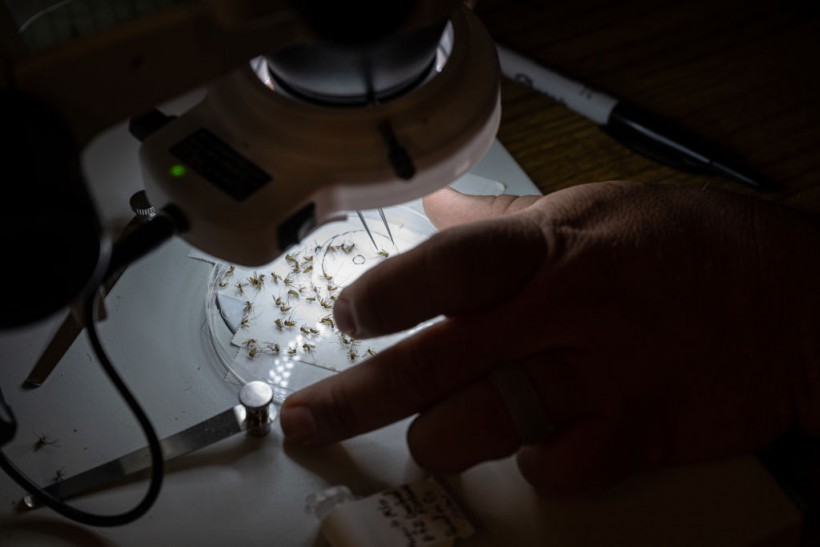Researchers recently engineered mosquitoes that delay the growth of parasites that cause malaria in their gut, stopping the transmission of the disease to humans.
As indicated in a ScienceDaily report, genetic modification is causing the insects to generate compounds in their guts that stunt the parasites' growth.
This means that they are not likely to reach the salivary glands of the mosquitoes and b passed on in a bite before the insects' death.
The method has, thus far, been demonstrated to dramatically lessen the probability of the spread of malaria in a lab setting, although if proven safe and effective in real-world settings, it could provide a powerful new tool to help eradicate malaria.
ALSO READ: Invasive Mosquito Species Discovered in South Florida, an Aggressive Biter

Researchers engineered mosquitoes that delay the growth of parasites that cause malaria in their gut, stopping the transmission of the disease to humans.
A Powerful Mechanism for Malaria Case Reduction
This innovation by scientists from the Transmission: Zero team at Imperial College London is designed to be coupled with the present "gene drive" technology to transmit the modification and drastically cut malaria transmission.
In their research published in the Science Advances journal, the scientists found that the modification they developed could be a powerful tool for lessening malaria cases "even when the transmission is high."
Essentially, Malaria stays one of the most devastating diseases in the world, putting about half of the population in the world.
Last year alone, it infected more than 240 million and killed more than 620,000 people, mostly children younger than five years old in sub-Saharan Africa.
Mosquitoes Modified to Stop Malaria Transmission
Since the technique is quite new, it would require extremely careful planning to minimize risks before field trials.
The Transmission: Zero team is developing two separate yet compatible strains of modified mosquitoes, one with the anti-parasite alteration and one with the gene drive.
They can then test the anti-parasite change first on its own, only adding in the gene drive once it has been proven effective.
According to Dr. Nikolai Windbichler, the study's co-lead author from the Department of Life Sciences at Imperial, they are now aiming to test if this modification can block the transmission of malaria not just using parasites they have reared in the laboratory although from parasites as well, that have infected humans.
If this is proven true, they will be set to take this development to field trials within two or three years.
Modification Against Parasites
The team set up a facility to produce and handle genetically modified mosquitoes and carry out some initial tests.
Such tests include collecting parasites from locally infected children in school to guarantee the modification works against parasites that circulate in relevant communities.
They are fully risking analysis of any possible release of modified mosquitoes, considering any probable dangers and ensuring they have buy-in from the local community.
Mosquitoes that can’t spread malaria engineered by scientists
— Bioengineer.org (@bioengineerorg) September 21, 2022
Read more: https://t.co/NgP5uRCpqB pic.twitter.com/XdPnWptolU
They are hopeful, though, that their intervention can eventually help eliminate malaria. Professor George Cristophides, a co-lead author from the Department of Life Sciences at Imperial, explained that history had taught humans that there is no silver bullet in malaria control. Therefore there is still a need to use all the weapons available at the team's disposal and generate even more, a similar Bioengineer.org report specified.
Related information about genetically modified mosquitoes against malaria is shown on eNCA's YouTube video below:
RELATED ARTICLE: Chemical Compounds From Human Odors Stimulate Mosquito-Borne Diseases Like Dengue Fever [STUDY]
Check out more news and information on Mosquitoes in Science Times.














